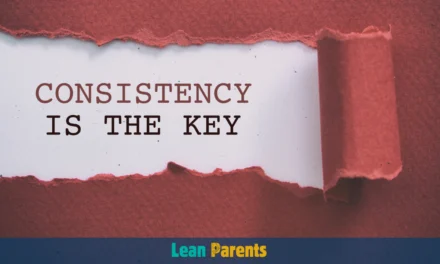Being a parent is a big job, and sometimes it feels like everyone has an opinion. You get advice from friends and family, and even strangers might judge you. A study showed that 72% of parents face criticism about how they raise their kids1. It can make you feel defensive and overwhelmed.
But remember, you know your child better than anyone. Your instincts as a parent are usually right. When faced with criticism, stay calm and confident. This guide will help you deal with parenting criticism. So, you can focus on raising happy, healthy kids.
Key Takeaways
- Parenting criticism is a common challenge faced by 72% of parents, according to research1.
- Developing emotional resilience and setting healthy boundaries can help parents effectively handle unsolicited advice.
- Understanding the psychology behind parenting criticism can provide insight and empower parents to respond constructively.
- Identifying the difference between helpful feedback and harmful criticism is crucial for maintaining confidence in your parenting style.
- Building a supportive network of like-minded parents can provide the validation and encouragement needed to thrive.
Understanding Why People Criticize Your Parenting Choices

As a parent, you might feel upset when others give unsolicited advice. It’s normal for people to have opinions on raising kids. But, the reasons behind this can be deep. Learning about the common reasons for this criticism can help you deal with it better.
Common Sources of Parenting Criticism
Many people can criticize your parenting, like in-laws, parents, siblings, friends, and even strangers2. A study found that 85% of parents got unwarranted advice and criticism even before their first child was born2. Also, 60% of parents said they face ongoing criticism from family and friends2.
The Psychology Behind Unsolicited Advice
People often think they’re helping by giving advice, even if it’s unwanted3. 75% of parents struggle to hear criticism about their parenting, and 60% get defensive3. But, research shows that 65% of critics mean well, and 80% are more open to feedback when thanked3.
Impact of Cultural Differences on Parenting Expectations
Cultural differences also shape what people expect from parents2. A study found that 75% of criticism comes from family and friends, not professionals2. This shows how family and society influence parenting views.
Understanding why people criticize your parenting can help you respond better. Remember, your parenting is special to your family. Keeping your confidence in your parenting is key for your child’s happiness.
Recognizing Different Types of Parenting Criticism
As a parent, you might hear different opinions about how you raise your kids. It’s key to know these opinions to handle them well and stay confident. Criticism can range from helpful tips to hurtful comments based on age or culture.
One common criticism is unsolicited advice from friends, family, or strangers. They might share their views, but these might not match your parenting style4. Another criticism is generational differences, where older relatives might have different views on raising children5.
Cultural differences also lead to criticism. Cultural expectations on raising kids, discipline, and family life vary a lot. This can cause misunderstandings and judgments from those with different backgrounds5. It’s vital to be open and understanding when facing such criticism.
Some criticism is toxic in nature, coming from jealousy, control, or a wish to undermine your parenting. These comments can be very hurtful and hard to deal with5.
Knowing the different types of criticism helps you respond better and stay confident. Always trust your instincts and choose what’s best for your family, no matter what others say.
The Emotional Impact of Receiving Parenting Criticism

Parenting is a rewarding journey, but it comes with challenges. One big challenge is dealing with the emotional pain from criticism about how you parent. Criticism can make you feel ashamed, guilty, defensive, and may make you doubt your abilities6. It’s important to understand and manage these feelings to stay confident in your parenting choices.
Managing Feelings of Guilt and Self-Doubt
Criticism can hurt when it touches on your doubts about parenting6. Parents who doubt themselves more, don’t reflect well, and have less self-compassion feel more pain6. Remember, feeling this way is normal. By being kind to yourself and recognizing your strengths, you can start to overcome guilt and doubt.
Dealing with Anxiety About Your Parenting Decisions
Criticism can make you anxious about your parenting choices6. Studies show parents often feel more positive emotions than non-parents6. But criticism can upset this balance. Using mindfulness, stress management, and support from loved ones can help you cope with anxiety.
Building Emotional Resilience
Building emotional resilience is crucial when facing parenting criticism6. Parents with 2 to 3 kids face high stress, but having 4 kids is not as stressful6. Having 5 or 6 kids or more is the most stressful6. By being self-aware, taking care of yourself, and having a strong support system, you can better handle criticism and stay focused on your parenting goals.
| Parenting Stress Levels | Number of Children |
|---|---|
| Highest | 5 or 6 children or more |
| High | 2 to 3 children |
| Lower | 4 children |
Remember, the emotional impact of parenting criticism is real. But with the right strategies, you can build resilience and continue to nurture your children with confidence678.
Setting Healthy Boundaries with Family Members
It’s important to set clear boundaries with family who often give unwanted advice or criticism. Setting boundaries helps protect your parenting choices and keeps family relationships healthy9.
Talking one-on-one with family can help you share how their criticism impacts you. By telling them what you need and what advice you’re open to, you can keep relationships positive. This also helps protect your right to make parenting decisions10.
It’s key to be ready for challenges when setting boundaries. Family might not like it when you stand up for yourself. Talking about boundaries before family gatherings can make it easier to stick to them10.
It’s also important to have consequences for when boundaries are crossed. This shows how serious you are about your limits. For example, you might leave the room or skip holidays if family members disrespect you10.
Remember, setting healthy boundaries is crucial for positive family relationships. It helps build respect and care. By focusing on your needs and keeping trust, you can be a strong parent in your family9.
Handling Criticism from Strangers in Public Places
Parenting in public can sometimes lead to unwanted opinions from strangers. It’s tough to handle these comments, but there are ways to stay calm and protect your parenting journey11.
Quick Response Strategies
A polite yet firm response can help when faced with criticism. Try saying “I see it differently” or “Thank you for your feedback.”11 These phrases show you’ve heard them while steering the conversation in a kind way.
Maintaining Your Composure
It’s normal to feel upset when someone criticizes your parenting. But, taking a deep breath can help you stay calm. You know your child best, and you’re making choices for their good12. Staying calm sets a good example for your child and prevents things from getting worse.
When to Walk Away
Sometimes, it’s best to leave a confrontational situation. If someone’s criticism gets too aggressive or keeps going, it’s okay to step away12. Walking away helps avoid more trouble and lets you think about how to handle it better.
Dealing with public criticism is all about finding the right balance. By using strategies and staying calm, you can handle tough moments well. This shows your child a positive example13.
Protecting Your Children from Negative Comments
As a parent, it’s key to keep your kids safe from harsh words. Highly sensitive children are especially hurt by mean comments. They might feel overwhelmed and have trouble controlling their feelings14.
By standing up for your child, you can block out negative comments. This helps them avoid feeling ashamed or like they caused the problem14.
Don’t worry too much about how your child might feel. They might not be as affected as you think14. Instead, change negative comments into something that doesn’t make them feel guilty14. This builds their strength and helps them deal with criticism better.
It’s also important to remember that siblings can react differently to the same situation. This is because they have their own unique personalities14. By understanding and respecting your child’s sensitivity, you can support them in finding ways to cope.
| Parental Denigration Frequency | Family Type |
|---|---|
| Higher | Divorced and never-married families |
| Lower | Married families |
Studies show that parental denigration happens more in families that are not married. Mothers are more likely to criticize than fathers, especially in divorced families15.
“Children from divorced families who reported more frequent parental denigration also reported higher levels of depressive symptoms, less satisfaction with life, and more frequent parental conflict.”15
By being proactive and creating a safe space, you can help your children face negative comments with confidence. Your role is to protect and support your kids, keeping them safe from harmful words15 negative comments.
Combating Negative Thinking in Children
Dr. Tamar Chansky says there are four steps to help kids change their thinking and fight negative thoughts:16
- Recognizing negative thoughts
- Challenging the validity of those thoughts
- Generating alternative, more positive perspectives
- Practicing positive self-talk and affirmations
By teaching your children these steps, you can help them become more optimistic and resilient16. This way, they can better handle negative comments and stay positive.
Distinguishing Between Helpful Feedback and Harmful Criticism
As parents, it’s key to know the difference between helpful feedback and harmful criticism. Constructive criticism is given with care and offers specific ways to improve17. On the other hand, harmful comments are judgmental, too general, or aggressive, aiming to tear you down17.
Signs of Constructive Criticism
Constructive criticism focuses on actions and behaviors, not personal attacks. It’s based on facts and aims to make you a better parent17. The Sandwich Concept is a good way to give feedback, by saying “Good statement > Area to improve > Good statement.”17
Identifying Toxic Commentary
Toxic comments are subjective, judgmental, and emotionally charged. They often target your character or personality, making you feel defeated and defensive17. Children with ADHD, anxiety, depression, or learning disorders are especially sensitive to negative feedback18. So, it’s crucial to be careful with how criticism is given to them18.
The main difference is the intention behind the feedback. Constructive criticism comes from a place of care and a desire to help you grow. Toxic commentary, however, is driven by a need to criticize or control17. By understanding these differences, you can decide which feedback to listen to and which to ignore. This helps you confidently guide your parenting journey17.
“Constructive feedback tries to educate, while negative feedback aims to embarrass.”17
| Constructive Criticism | Toxic Commentary |
|---|---|
| Focuses on actions and behaviors | Targets personal character or personality |
| Objective and fact-based | Subjective and judgmental |
| Aims to help you improve | Aims to criticize or control |
| Delivered with care and empathy | Delivered aggressively or emotionally charged |
How to Respond to Parenting Criticism Effectively
As a parent, you might face criticism about your parenting style. Over 90% of parents go through this19. It’s tough not to feel emotional, but responding well is key. Around 60% of parents find being polite effective19.
It’s vital to trust your instincts when criticized. About 70% of parents believe in following their gut19. Talking to a loved one can also help, as over 80% find it useful19.
Showing empathy is another good strategy, with nearly 50% of parents finding it helpful19. Even harsh feedback can help you grow, with about 65% of parents seeing its value19. Seeking professional help can also help manage your feelings.
Remember, effective communication is crucial. Stay calm, educate others, and focus on the positive. This way, you can handle criticism with confidence and grace.
Consider the source of the criticism. Decide if you should engage or politely end the conversation. Criticism from those close to your children can be especially hard, affecting nearly 75% of parents19.
Learning to respond to criticism well is essential for parents. Use empathy, trust your instincts, and communicate effectively. This way, you can overcome this challenge and grow as a parent.
“Feedback, even when critical, can be a valuable gift to aid in our skills improvement as parents.”
Building Confidence in Your Parenting Style
Being a parent means trusting your gut and believing in your way of raising kids. You know your child better than anyone else. What works for one family might not work for another. Studies show that kids raised with an authoritative style are often happy and independent. On the other hand, kids of permissive parents might struggle with self-control and feel anxious or depressed20.
Trusting Your Parental Instincts
You naturally know what your child needs and what’s best for them. Babies raised by attachment parents cry less and have fewer problems. They grow up feeling more secure20. Trust your instincts and make choices that might not be the norm. Every child is different, so your parenting should fit their unique needs.
Finding Support in Like-Minded Parents
Getting support from parents who think like you is very helpful. Parenting styles can differ based on culture and child temperament. But, finding people who share your views can make you feel understood and less alone20. Look for local groups, attend workshops, or join online forums to connect with others and boost your confidence.
| Parenting Style | Outcomes |
|---|---|
| Authoritative | Children tend to be happy, independent, self-controlled, and achievement-oriented20. |
| Permissive | Children may lack self-control and show signs of anxiety and depression20. |
| Attachment | Babies cry less, have fewer behavior problems, and grow up feeling more secure20. |
Building confidence in your parenting style is a journey. By trusting your instincts and finding support, you can face challenges and enjoy the journey of raising your child.
Common Triggers of Parenting Criticism
As parents, we often face unsolicited criticism about our parenting choices. Knowing what triggers this criticism helps us prepare and respond21. Parents who are overly critical set high expectations for their children, causing them to feel inadequate21. This can lead to low self-esteem, anxiety, and depression in children21.
Common triggers include public tantrums, different disciplining methods, and choices that go against cultural norms22. Behavioral issues like crying, whining, and disobedience often spark criticism22. Feeling angry, sad, or out of control can also lead to criticism22.
These triggers often come from our own childhood experiences22. Feeling disrespected or hurt as a child can affect how we react as parents22. Reflecting on these factors helps us manage criticism and avoid past mistakes22.
Seeking support through counseling or therapy can help parents heal and improve their relationships21. With self-awareness and a desire to learn, we can overcome parenting criticism and give our children the care they need212322.
Creating a Support System for Your Parenting Journey
Parenting is both rewarding and challenging. Building a strong parenting support system is key. This network includes family, friends, and professionals. They offer encouragement, advice, and validation when you doubt your parenting choices.
Joining local or online parenting groups is a great idea. These groups connect you with others who get the ups and downs of parenting. They provide a safe space to share, seek advice, and find support.
If you’re feeling overwhelmed, seek help from a therapist or parent coach. They offer personalized support and help you trust your parental instincts24. Remember, asking for help shows strength, not weakness. It can greatly improve your well-being and parenting skills.
| Parenting Support Resources | Benefits |
|---|---|
| Parenting Groups |
|
| Therapists and Parent Coaches |
|
Building a strong support system gives you a network of encouragement and advice when you need it25. Embrace the power of community. Let others enrich your parenting journey with their wisdom and support.
Learning and Growing from Critical Feedback
As a parent, seeing criticism as a chance to grow is key26. It’s not about being attacked, but about getting better26. By listening to feedback, you can become a better parent and teach your kids valuable lessons27.
Using Criticism as a Tool for Self-Improvement
When you get criticized, take a moment to think about it28. Is there something in your parenting that could be better28? Seeing criticism this way helps you find areas to improve27.
Making mistakes is part of parenting26. By being open to learning, you show your kids the value of feedback27. This teaches them to grow and become their best selves27.
When to Adjust Your Approach
If the feedback is valid, think about changing your parenting style28. You might try a new way to discipline or talk to your kids26. Or, you could look for more resources to help you26.
But, don’t change just to please others27. Think about what’s best for your family and your values28. Make choices that fit your family’s needs28.
By seeing criticism as a chance to grow, you improve your parenting and teach your kids to face challenges27. Parenting has ups and downs, but being open to learning helps you handle it well26.
Conclusion
Handling parenting criticism is a journey that needs parenting confidence and strength. Knowing where criticism comes from, how to respond, and having a strong support system helps. You can face these challenges while staying true to your parenting values and goals29.
Remember, you know your child best. Trust yourself to make the best choices for your family.
Dealing with criticism is tough but key to being a good parent. By accepting all feedback, you can keep growing and improving29. Investing in child development services makes kids healthier and more productive, benefiting everyone29.
It’s important to shift the burden of child care from parents to professionals. This could give all kids a better chance, not just the wealthy or well-educated.
To overcome parenting criticism, keep a balanced view and focus on your family’s needs. Surround yourself with people who support you. This way, you can handle criticism with confidence and create a great environment for your kids to grow30.
Millennial parents, especially those who are college-educated, tend to use gentle parenting. They avoid yelling or screaming, which is a common approach31. Research shows that parents are not happier than those without kids, debunking a common myth.
FAQ
What are common sources of parenting criticism?
How can cultural differences impact parenting expectations?
What are some common types of parenting criticism?
How can parenting criticism affect a parent’s emotions?
How can parents set boundaries with family members who frequently criticize their parenting choices?
How can parents handle criticism from strangers in public places?
How can parents protect their children from the impact of criticism?
How can parents distinguish between constructive feedback and harmful criticism?
What are some effective responses to parenting criticism?
How can parents build confidence in their parenting style?
What are some common triggers of parenting criticism?
How can parents build a strong support system for their parenting journey?
How can parents learn and grow from critical feedback?
Source Links
- Mom Shaming – How To Deal With People Who Criticize Your Parenting – Conscious Parenting Revolution
- What Should You Do If Someone Criticizes Your Parenting? — Sarah Moore, LPC
- How To Respond When Someone Criticizes Your Parenting | Therapy Cincinnati
- Types of Parenting Styles and Effects on Children – StatPearls
- Pros and Cons of 4 Parenting Styles
- The Emotional and Mental Health Challenges of Parenthood — Developing Minds
- Study reveals impact of too much parental involvement
- Negative Parenting Styles: Signs and Effects on Kids
- Family Relationships — How to Set Healthy Boundaries
- How to Actually, Finally, Truly Set Some Boundaries With Your Family This Holiday Season
- How to Deal with Unsolicited Advice (and Criticism!) from Strangers – A Fine Parent
- To The Strangers Who Criticize My Parenting – Parent From Heart
- Handling public tantrums – PedsDocTalk
- Understanding and Supporting Highly Sensitive Children (HSC) — Child Development and Parent Consultation
- Episode 316: Dr. Tamar Chansky on Children & Negative Thinking
- Learn the Right Way to Give Feedback | Grow Kids Minds
- How to Help Kids Deal With Criticism – Child Mind Institute
- The top 5 ways to respond to parenting criticism
- Having Confidence In Your Parenting Style Matters
- The effects of highly critical parents — Wilson Counseling
- Parenting Triggers: The Hard Truth All Parents Face (and What to Do about It) – A Fine Parent
- The Impact Of Critical Parenting On Adult Life – Advantage Mental Health Center
- The Parenting Journey — Our Children Are the Guides – Center for Children and Youth
- Are You An Amazing Parent? You May be Surprised to Find the Answer
- How to Help Your Child Grow From Constructive Criticism | CCA
- Constructive Criticism for Kids: How to Help Kids Grow
- Learning to Positively Respond to Constructive Criticism from Professors
- Stop Pretending That Intensive Parenting Doesn’t Work
- The Case Against Gentle Parenting – Elizabeth Grace Matthew
- I Love My Children. I Hate My Life.





